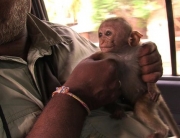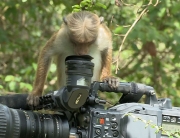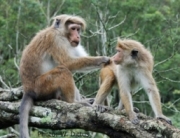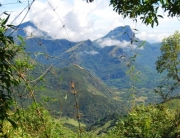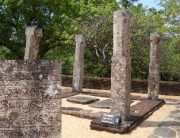STUDENT CONFERENCE ON
CONSERVATION SCIENCE
25 – 28 SEPTEMBER, 2013, BANGALORE
100 Presentations | 300 of Africa and Asia’s brightest conservation researchers
Demography: A Window to the Evolution of Primate Societies
Wolfgang Dittus, Ph.D.
National Institute of Fundamental Studies, Sri Lanka
Smithsonian Conservation Biology Institute, USA
Date: 27th September, 2013
Time: 08:30 A.M
The basic assumption in studies of social evolution is that phenotypes, including behaviors, have been naturally selected to fine-tune an organism’s efficiency in surviving and passing on copies of its genes to future generations. The evolutionary honing of a phenotype relates to exogenous variables that influence its ability in making a daily living in a particular habitat, manipulating social partners to advance its own survival and reproductive success and other factors. The challenge to students of such a system is to identify and measure key exogenous variables of social behavior (e.g., dominance hierarchical relations), ecology (e.g., feeding strategies) among others, and to relate them the measures of individual Darwinian fitness. In long-lived organism, like primates, such an inquiry demands a substantial investment of time and effort to test sociobiological hypotheses. Some salient findings of our 45 years of study of primates at Polonnarruwa will consider gender differences in life-history strategies, population genetic distributions, issues related to paternity (DNA studies) and inbreeding avoidance, and conservation. The study also suggests that short-term cross-sectional demographic profiles of extant natural populations of primates could make an invaluable contribution to our understanding of social evolution.


